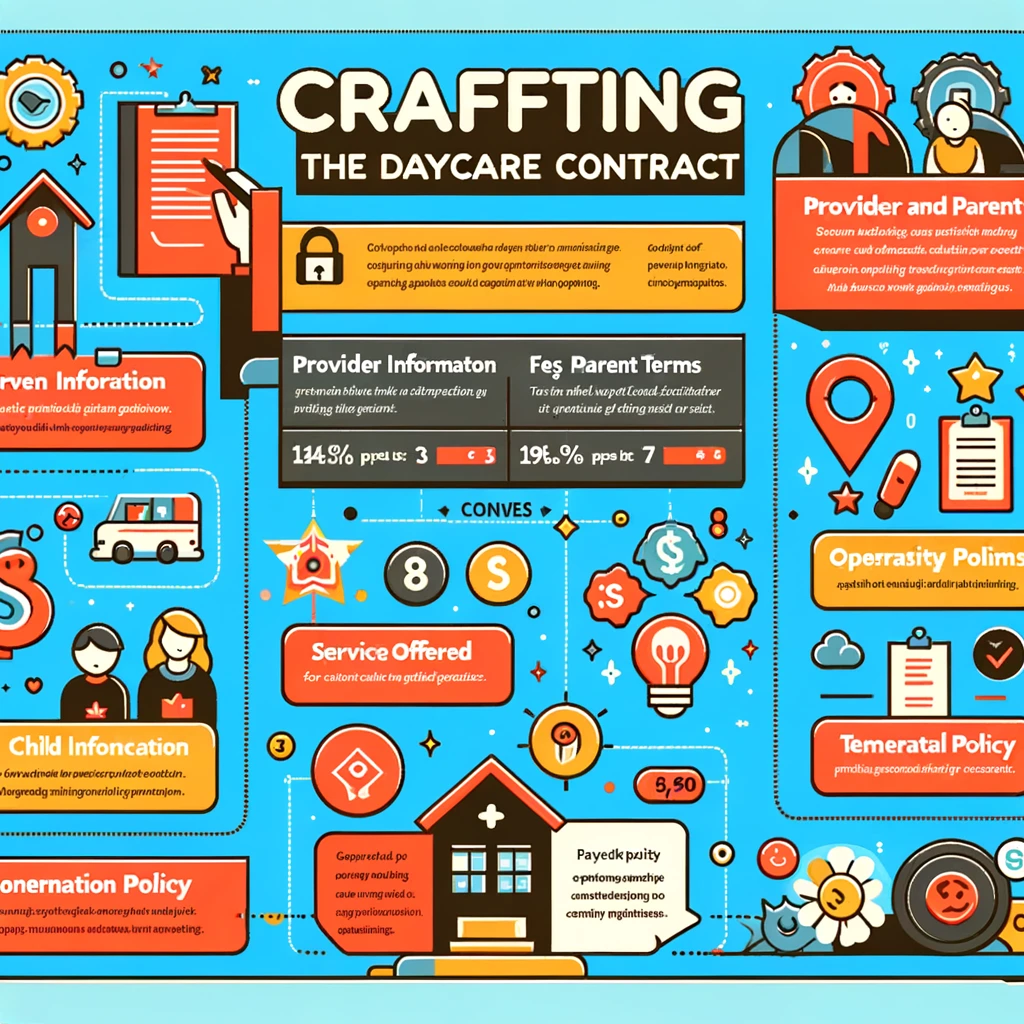Crafting the Perfect Daycare Contract: A Comprehensive Guide

In the realm of childcare services, a well-structured daycare contract serves as the backbone of a smooth operational flow, ensuring both providers and parents have a clear understanding of their rights, responsibilities, and expectations. This detailed guide aims to dissect the essential components of a daycare contract, offering examples and best practices to help daycare providers draft an agreement that is both comprehensive and compliant with regulatory standards.
Understanding the Importance of a Daycare Contract
A daycare contract is a legally binding document between a childcare provider and the parent(s) or guardian(s) of a child enrolled in the daycare service. This contract outlines the terms of service, fees, schedules, policies on late pickups, cancellation terms, and much more, providing a clear framework for the business relationship.
For an in-depth understanding of childcare services regulations and the importance of contracts, the U.S. Department of Health & Human Services offers valuable resources and guidelines that are pivotal for anyone in the childcare industry.
Key Elements of a Daycare Contract
1. Provider and Parent Information
The contract should begin with the basic information of both parties involved, including names, addresses, and contact details. This sets the foundation for a formal agreement and ensures clarity on who the agreement is between.
2. Child Information
Including the child's name, birthdate, and any special needs or medical information is crucial for personalized care and in case of emergencies.
3. Services Offered
Detail the specific services the daycare will provide, such as meals, educational programs, and activities. This section should also outline the daily schedule and any optional services available for additional fees.
4. Fees and Payment Terms
Clearly specify the cost of daycare services, payment schedules, late payment penalties, and acceptable payment methods. Transparency in this area prevents future disputes and ensures financial stability for the provider.
The Consumer Financial Protection Bureau provides guidance on financial transactions and can be a helpful resource for understanding best practices in handling payments.
5. Operational Policies
Include policies on operating hours, drop-off and pick-up times, late pick-up penalties, holidays, and closure days. It's also important to outline procedures for emergencies, illness, and medication administration.
6. Termination Policy
Both parties should understand the conditions under which the contract can be terminated, including notice periods and any fees associated with early termination.
7. Liability and Safety Provisions
Outline the daycare's policies on liability, insurance coverage, and safety protocols to protect both the children and the daycare provider. This section is vital for legal protection and peace of mind for all parties involved.
For comprehensive information on liability and safety in childcare, consulting Wikipedia's page on Child Care can provide a broader context and additional insights.
8. Parental Involvement
Define expectations for parental involvement, including participation in events, meetings, and communication preferences. Encouraging a partnership approach fosters a positive environment for the child's development.
Drafting Your Daycare Contract
When drafting a daycare contract, it's essential to consider the legal requirements specific to your state or country. Regulations can vary significantly, and compliance is non-negotiable. The National Association for the Education of Young Children offers resources and accreditation information that can help ensure your contract meets professional standards in early childhood education.

Create & Review Your Contracts 10x Quality and Ease
Lawyer-level AI handles all your contract needs, with real lawyers providing safeguarding support

Incorporating Examples and Templates
Utilizing examples and templates can be a helpful starting point in creating your daycare contract. However, it's crucial to customize these documents to reflect your specific services, policies, and legal requirements accurately.
Educational institutions often provide templates and guidance on contract drafting. For instance, Harvard University's Office of General Counsel offers templates and legal tools that, while not specifically tailored to daycare, can serve as an excellent reference for contract drafting principles.
Conclusion
A comprehensive daycare contract is instrumental in establishing a clear, professional relationship between childcare providers and parents. By incorporating the key elements outlined in this guide and adhering to regulatory standards, daycare providers can create a contract that safeguards their business, supports the children in their care, and builds trust with parents.
For further exploration and resources on crafting effective contracts and understanding childcare regulations, visiting authoritative sites like the U.S. Department of Education can provide additional insights and support for educators and childcare providers.

